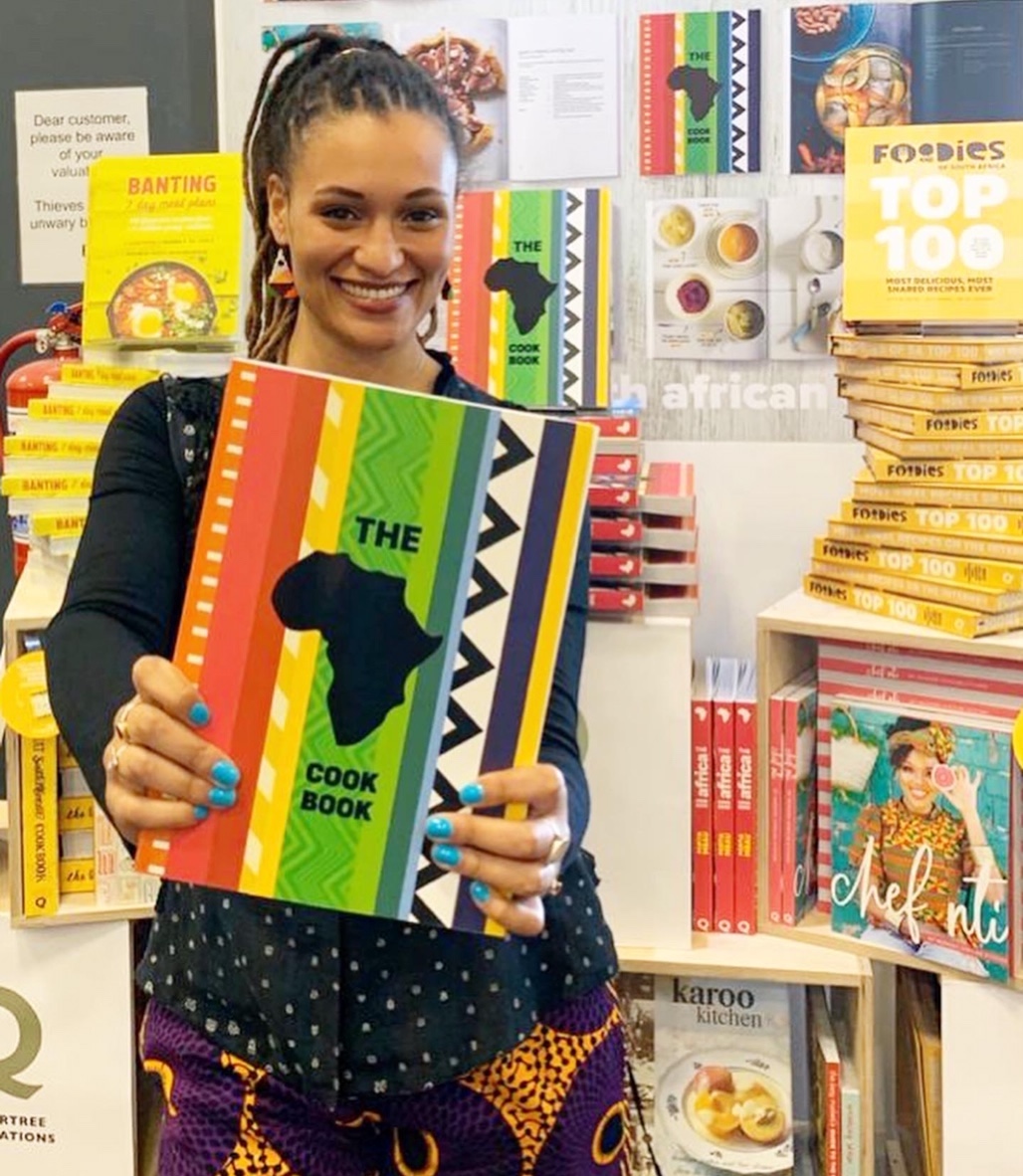The mother-daughter duo changing perceptions of African food
We’re chatting to Portia Mbau and Lumai de Smidt, the ebullient mother-daughter duo behind the @food.of.africa Instagram page, the Africa cookbook and Africa Café. They tell us what’s kept them busy during lockdown, their love of African recipes and what they’re planning next.
How have the last few months in lockdown looked for you? What have you been busy with?
The past few months were a process of first coming to terms with that fact that our travel plans for this year, which included culinary explorations to the Seychelles, would not happen. And then we settled into a time of reflection; we did several online courses teaching ourselves about e-commerce, marketing and virtual events, to name a few. We then began appreciating time with the family and, like many, we began cooking and baking together more than ever. We eventually got to the point where we saw the lockdown as a positive thing, an opportunity to do something new with ourselves and with the Food of Africa brand.
Your cookbook, The Africa Cookbook, seems to be going from strength to strength and has been very well received. Can you tell us a little about what you think is so special about it? What makes you most proud? Why is it important to you to celebrate all of Africa, and not just South Africa?
Thank you. The Africa Cookbook started as a recipe book for The Africa Café's popular recipes, which customers are always requesting. Then we noticed that, as mother and daughter, there are a lot of preconceptions that people have about African food that don't align to what our cuisine is today. We became passionate about wanting to change the misconceptions, and offer fresh new ideas. The first thing I (Lumai) decided was that the book had to be very visual. I wanted the pictures to be ones I would like on Instagram, the visuals had to tell a story. Our story spans 27 years, from when my parents started the restaurant in 1992, until the exciting digital world we live in now, so the visuals had to be contemporary African while showing connection to tradition. We carefully chose recipes that would showcase African food to be healthy, fresh and beautiful, as well as wholesome and tasty. Our travels throughout the continent confirmed how African food has always been very healthy, and aligns with the vegetarian and gluten-free fare that is gaining popularity today.

We are very proud to have worked on the book together. We enjoyed every step of the project and our visions were always aligned. While selling our book at the Oranjezicht City Farm Market, we were most touched to see youngsters of 10 or 12 years old picking up the book, and asking their parents to buy it for them. It's exciting to see the food and culture connect and inspire different generations.
I (Portia) feel it's so important to celebrate Africa as a whole because we need each other. Africa is weakened by divisions and seeing each other as competitors rather than a support network. South Africa in particular was isolated from the rest of the continent for so long during apartheid, and I feel that disconnection as a loss. Africa is such a rich continent, and culturally we need to support one another. For example, there is incredible food in East Africa, yet it's unknown in South Africa. Instead we are so familiar with French and Italian cuisine, and unfortunately it is to the detriment of the value we put in indigenous food. This trajectory in the South African diet has led to agricultural and health issues. My first passion has always been my health. I like to know where and how food is grown and how it's handled while being prepared. This is something I stressed in my restaurant. We are nourishing more than people's bodies with authentic African food; we are nourishing them culturally; and celebrating the African identity. For so long the African identity and all things African were undermined, so I consider it a privilege to be a part of changing that perception.

Can you tell us a little about the Afternoon Tea lives you’ve been doing on Instagram? How did you come up with the idea and what’s the concept around them?
African Afternoon Tea is truly a reflection of who we are. We often struggled with being known only as health foodies, or only as African foodies, when in reality we are multifaceted. Lumai is an artist and poet, she has made me hand-made cards with poems enclosed since she was 11. I am a gardener and passionate about health on many levels: mental health, spiritual health and physical health. After at least three months in lockdown we realised that the thing we all craved most was just to sit down and have a cup of tea with a friend. To talk about things close to your heart and unburden yourself a little. We missed that connection during social distancing, so the tea started as something relaxed and casual, where people could feel welcome and perhaps learn something while virtually sitting with us. Instagram Live gave us the opportunity to express ourselves more fully, share our self-care practices; talk about our approach to holistic health and to the subtle challenges we deal with daily. The magic of the “live” is that it gets us to take action; it is instant and there's no time for self-editing or bells and whistles, we are just real and open.
What are your plans for the future? Would you ever consider doing deliveries, or perhaps another restaurant or market pop-ups, etc?
The future is both exciting and undefined at the moment. As Food of Africa we would love to make some of the things we talk about on African Afternoon Tea, for example, home-made teas, granola, rusks, spice-and-herb mixes available online. I am also a restaurateur at heart and I believe that in some shape or form, I will be serving food made with love in a restaurant once again.

Can you tell us a little about one African dish close to your heart?
I’m a lover of herbs and spices, so while it's not a dish, my spice mix is a staple in my kitchen that makes its way into nearly every dish. The recipe is in the book, along with a chicken drumstick recipe my son loves. It's a recipe my mother and grandmother also used to make every Sunday. It has a lot of nostalgia and also connection to family for me. But it's not easy to choose my favourite recipe because all of them have a story and are close to my heart. Personally, I love eating the Moroccan herb salad, a simple salad or relish, packed with fresh herbs that spice up any dish. When at home I eat quite simply, so these simple and easy recipes are what I use often.
Follow Portia and Lumai on Instagram to see what they get up to next.


Comments